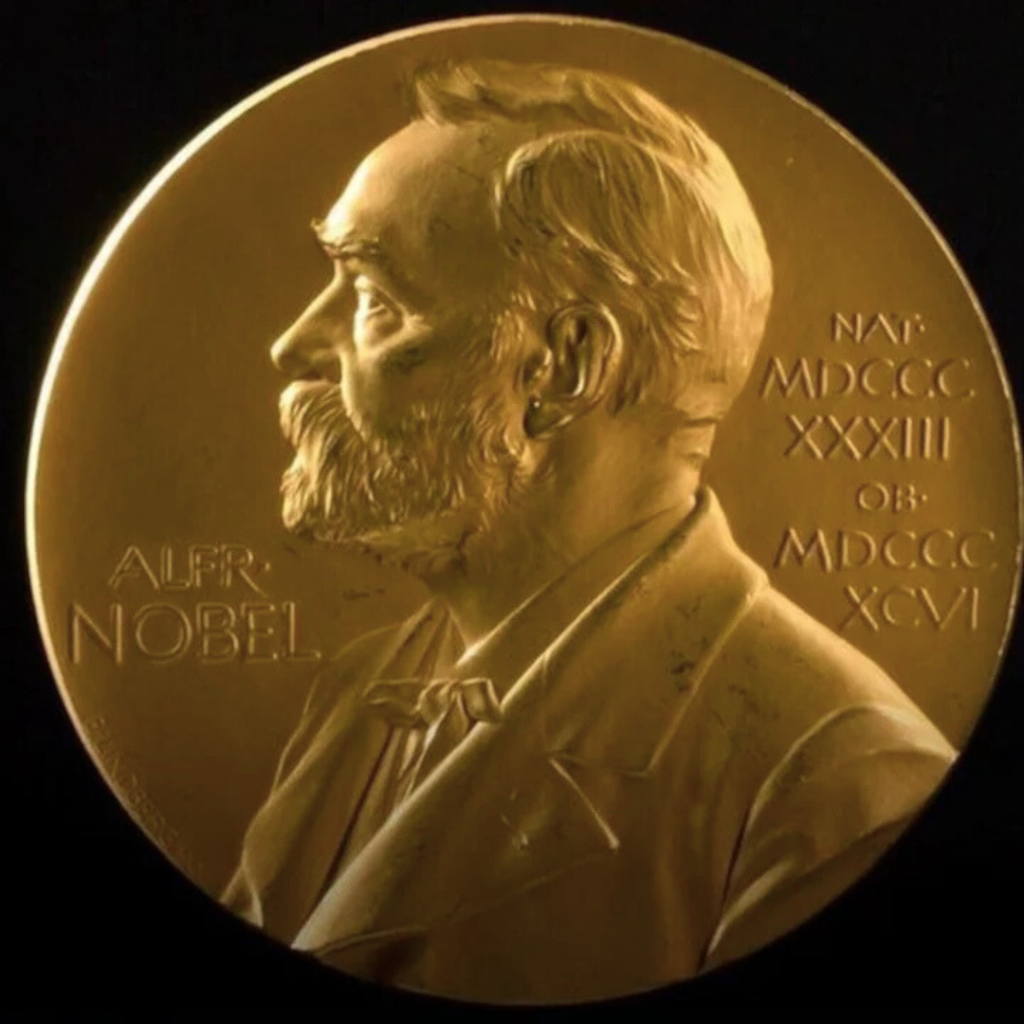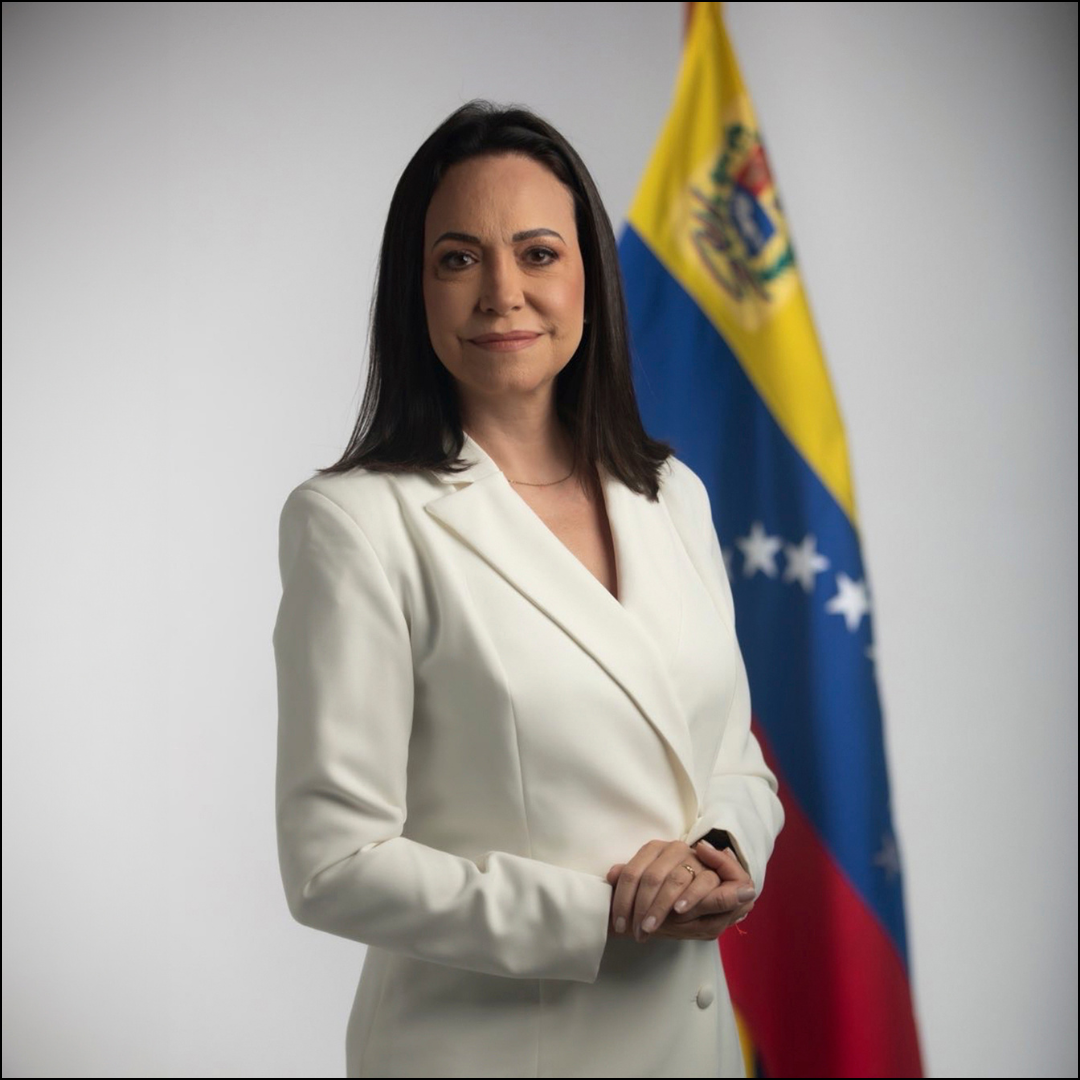María Corina Machado has become a global symbol of courage and hope in Venezuela’s struggle against authoritarianism. Renowned for her relentless opposition to Nicolás Maduro’s regime, she was awarded the 2025 Nobel Peace Prize on October 10, 2025, for her “unwavering commitment to democracy and human rights.” The question “Who is María Corina Machado?” resonates far beyond Venezuela, as her leadership inspires millions facing oppression worldwide. This blog explores her life, political journey, personal sacrifices, and the impact of her Nobel recognition, shedding light on why she is a pivotal figure in the fight for a free Venezuela.

Roots and Early Life
Born on October 7, 1967, in Caracas, Venezuela, María Corina Machado Parisca grew up as the eldest of four daughters in a prominent family. Her mother, Corina Parisca, was a psychologist, and her father, Henrique Machado Zuloaga, was a steel industry magnate. Her lineage, tied to the Marquis of Toro, placed her within Venezuela’s historical elite, but Machado’s path was shaped by intellect and service, not privilege. She earned an industrial engineering degree from the Catholic University Andrés Bello in Caracas and later a master’s in business administration from the University of Michigan. Her early career in manufacturing and international trade gave her a deep understanding of Venezuela’s economic potential, later fueling her critique of the regime’s devastating policies.
The Spark of Activism: Súmate
Machado’s political awakening came in 2002 when she co-founded Súmate, a civil society organization dedicated to ensuring transparent elections and promoting civic engagement. As Hugo Chávez’s government tightened control over institutions, Súmate’s mission to monitor elections and educate voters put Machado at odds with the regime. Accused of undermining national sovereignty, she faced early threats but emerged as a fearless advocate for democracy. Her ability to galvanize grassroots support through Súmate laid the foundation for her future leadership, showing her knack for mobilizing Venezuelans against authoritarianism.
A Bold Voice in the National Assembly (2011–2014)
In 2010, Machado entered formal politics, running for the National Assembly with Justice First (Primero Justicia) in Miranda state. Winning in 2011, she became one of Venezuela’s most outspoken legislators, denouncing corruption, human rights abuses, and economic mismanagement under Chávez and later Maduro. Her clear, principled speeches connected with a population grappling with hyperinflation and shortages. In 2014, she took her advocacy to the Organization of American States (OAS), speaking through Panama’s delegation to expose Maduro’s violent suppression of protesters.
This act led to severe consequences. In March 2014, the regime stripped her of parliamentary immunity and expelled her from the National Assembly, charging her with treason and conspiracy. The move sparked massive protests, with Machado emerging as a leader of the 2014 demonstrations demanding reform. The regime’s violent response—dozens killed, thousands arrested—only deepened her commitment to non-violent resistance.
Founding Vente Venezuela
In 2012, Machado launched Vente Venezuela, a center-right liberal party advocating for individual liberties, free markets, and democratic institutions. Unlike other opposition groups that sometimes engaged with the regime, Vente Venezuela took a staunch anti-Maduro stance, calling for a complete break from authoritarianism. Machado’s direct, unyielding leadership style won her devoted supporters but also intensified regime hostility. She faced a travel ban since April 2014, accusations of terrorism, and alleged assassination plots, yet her party’s platform resonated with Venezuelans enduring economic collapse and a humanitarian crisis that forced over 7 million to flee by 2025.
The 2023 Primaries and 2024 Election
Machado’s influence soared in October 2023 when she won the opposition primary elections with 92% of the vote, positioning her as the unified candidate to challenge Maduro in the July 28, 2024, presidential election. Her campaign, anchored by the slogan “Until the end,” promised democratic restoration and economic revival. However, in January 2024, the regime disqualified her, citing fabricated charges of corruption and support for sanctions. Machado endorsed Edmundo González Urrutia, who, per opposition and international tallies, won with roughly 70% of the vote. Maduro’s disputed victory claim led to protests and a brutal crackdown, forcing Machado into hiding on August 1, 2024, after death threats.
From hiding, she continues to lead via video messages and her X account (@MariaCorinaYA), with over 6.2 million followers. A September 2025 poll showed her support among non-Chavistas at 69%, underscoring her enduring role as a unifying figure.
The 2025 Nobel Peace Prize
On October 10, 2025, the Norwegian Nobel Committee awarded Machado the Nobel Peace Prize for her “tireless work promoting democratic rights for the people of Venezuela and for her struggle to achieve a just and peaceful transition from dictatorship to democracy.” Committee chair Jørgen Watne Frydnes praised her as a “brave and committed champion of peace” who “kept the flame of democracy burning during a growing darkness.” The award highlighted her non-violent resistance and ability to unify the opposition, amplifying her global call for solidarity.
In a video message on X, Machado said: “This recognition belongs to every Venezuelan who has dared to dream of freedom amid terror. The Nobel illuminates our path, but the light comes from the unyielding spirit of our people.” Due to her situation in hiding since August 2024, her attendance at the December 10, 2025, Oslo ceremony is uncertain. Her anticipated acceptance speech is expected to emphasize non-violent resistance, the human cost of authoritarianism, and a plea for international action, building on her statement that “the tools of democracy are also the tools of peace.”
During the press conference following the Nobel announcement, Jørgen Watne Frydnes addressed concerns about Machado’s safety and security, given her status in hiding due to serious threats from the Maduro regime. He noted that such considerations are a recurring discussion for the committee, “particularly when the person who receives the prize is in hiding because of serious threats to her life.” Frydnes emphasized that Machado remains active in Venezuela and will continue her work, stating that the committee carefully considered the award’s impact and believes it will “support her cause and not limit it.” When asked if Machado would attend the prize-giving ceremony in Oslo in December, Frydnes expressed hope but acknowledged the “serious security situation” she faces, underscoring the committee’s awareness of her perilous circumstances. He concluded the press conference by thanking attendees, affirming the Nobel Prize’s role in bolstering laureates under threat.
Personal Sacrifices and Resilience
Machado’s fight has exacted a heavy personal toll. In hiding since August 2024, she is separated from her three children—Henrique, Ricardo, and Ana Corina—two of whom fled abroad for safety. In a September 2025 interview, she shared: “Every day I fight for my children’s future, but not seeing them is a wound that never heals.” Despite attempted arrests, including one in January 2025, and constant surveillance, she remains steadfast, embodying resilience akin to Aung San Suu Kyi or Nelson Mandela, yet rooted in Venezuela’s unique struggle. Her commitment to non-violence and democratic ideals continues to inspire, as seen in her massive X following and global support.
Broader Impact and Recognitions
The Nobel Prize complements other honors: in 2024, Machado and González received the Sakharov Prize for Freedom of Thought and the Václav Havel Human Rights Prize. In February 2025, they earned the Geneva Summit’s Courage Award. U.S. senators like Rick Scott and Marco Rubio have hailed her as a “beacon of hope and resilience,” while betting markets favored her Nobel win over figures like Donald Trump. Her influence inspires activists globally, offering a model for peaceful resistance in authoritarian contexts.
Looking Ahead
Venezuela’s crisis—economic collapse, mass migration, and repression—persists, but Machado’s Nobel Prize brings renewed global focus. She continues to call for sanctions and diplomatic pressure to secure free elections, stating, “The freedom of Venezuela is the conquest of every day.” Her leadership, from hiding, remains a rallying point for Venezuelans and a challenge to Maduro’s legitimacy.https://www.elmundo.es/internacional/2024/05/18/66471c8ae85eceed548b459a.html
For those asking, “Who is María Corina Machado?” She is a leader who has transformed personal sacrifice into a global movement for democracy. Her journey from Súmate to the 2025 Nobel Peace Prize reflects an unyielding fight for justice and freedom.https://theinfohatch.com/2025-nobel-prize-in-physiology-or-medicine-award/

